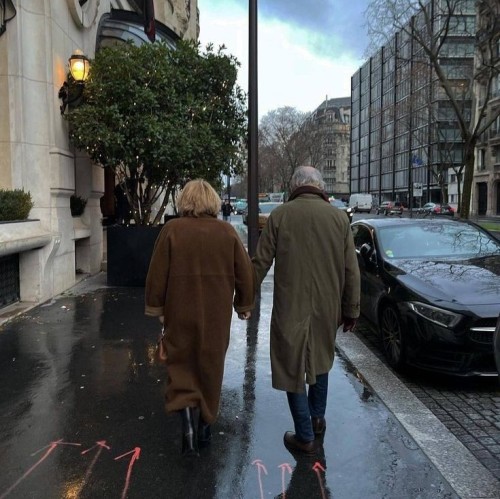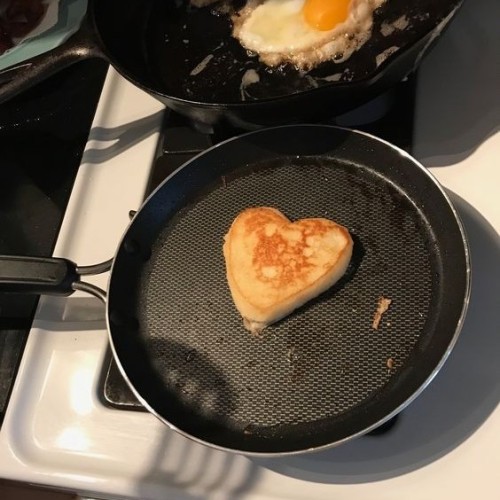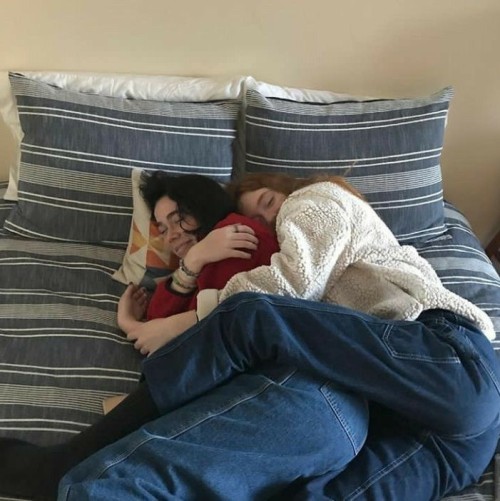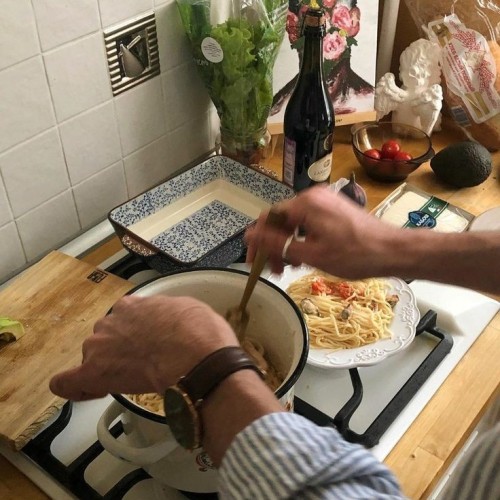You With Your Precious Eyes —

You with your precious eyes —
The gods differ from mortals here not because they are above the law but because they possess the insight to avoid breaking it. This marks the difference between gods and mortals perhaps more deeply than death itself: the gods never find themselves in the position of Oedipus, suddenly and unimaginably guilty. They are able to avoid actions whose consequences they cannot control; mortals risk such consequences in their every action. And perhaps it is even a kindness that transgression and death go hand in hand, that those who cannot die need not sin: for one who has broken the law which even the gods fear, the best thing is to die quickly.
-incest, cannibalism, and the rise of the house of atreus, michael kinnucan
So the ubiquitous counsel of the chorus concerning the hero—look what fortune has done here, she used to be on top of the world, don’t count on happiness, don’t believe anyone happy until he is dead—says more than it seems to. In the last analysis, what can one say of mere mortals? A human is just too partial, too speckled and subject and already-half-gone, for anything to be really true or false of him. Is he happy, is she sad? Maybe, a bit, for a time, but really—who can say, who can even care? That’s how it is for humans, unless and until they are tragic. The tragic hero is complete. You can call him unhappy (miserable, utterly broken) even before he is dead. For an instant he is something like divine. And then he dies, because there’s nothing left to do. The center of every tragedy is the image of a human being who has already died but keeps talking, someone whose face is a mask. Antigone says this explicitly—she is already dead; Oedipus acts it out in gouging out his eyes.
-the gods show up, michael kinnucan
society6 | twitter | ko-fi | deviantart
More Posts from Stibnium and Others
Someone get him out of there.


“There is little evidence for what Saint-Just really thought during the early weeks of the Convention, so there is now no way of knowing whether he hesitated or not between factions, or what factors inclined him to make up his mind. We only know that he chose Robespierre, unequivocally, and for the rest of his life. His choice was all the more striking since, out of the twelve deputies from the Aisne, he was the only one to align himself with the Montagnards.”
- Marisa Linton, The Man of Virtue: The Role of Antiquity in the Political Trajectory of L. A. Saint-Just
Victor Hugo on Talleyrand's death
For @empirearchives who was interested, here's a translation of Victor Hugo's text about Talleyrand's death. My thanks to @microcosme11 for her help <33
Choses Vues, Victor Hugo
1838
Talleyrand
19th of May
In the Rue St-Florentin, there is a palace and a sewer.
The palace, with its noble, rich, and dull architecture, was long called "Hôtel de l'Infuntado"; today, we read on its front door: Hôtel Talleyrand. During the fourty years he lived on this street, the last host of this palace might never have set eyes on this sewer.
He was a stranged, feared, and considerable character: his name was Charles-Maurice de Périgord; he was noble as Machiavel, a priest like Gondi, defrocked like Fouché, witty as Voltaire, and lame as the devil. One could say that everything limped with him: the nobility which he had put to the service of the republic, the priesthood he had dragged on the Champ-de-Mars then threw down the drain, the marriage he had broken by twenty scandals and by a voluntary separation, the wit he dishonoured through vileness. This man, nevertheless, had grandeur.
The splendours of both regimes were mixed together inside of him: he was prince of the old kingdom of France, and prince of the French Empire.
For thirty years, from the depth of his palace, from the depth of his mind, he had just about led Europe. He had let the revolution call him "tu", and had smiled at it, ironically of course; but it had not noticed. He had approached, known, observed, pierced, stirred, upturned, delved into, mocked, intellectually fertilized all the men of his era, all the ideas of his century, and there had been a few minutes in his life when, holding in his hand the four or five fearsome threads that moved the civilized universe, he had had for a puppet Napoleon the First, Emperor of the French, King of Italy, Protector of the Confederation of the Rhine, Mediator of the Swiss Confederation. Such was the game this man played.
After the Revolution of July, that old race, whose grand chambellan he was, having fallen, he found himself standing on one foot and told the people of 1830, sitting, bare-armed, on a pile of cobbles: Make me your ambassador.
He had received Mirabeau's last confession and Thiers' first confidence. He had said himself he was a great poet and had made a trilogy in three dynasties: Act I, Buonaparte's Empire; Act 2, The House of Bourbon; Act 3, The House of Orleans.
He had done all of this in his palace, and, in this palace, like a spider in its web, he had attracted into it and taken successively heroes, thinkers, great men, conquerors, kings, princes, emperors, Bonaparte, Sieyès, Mme de Staël, Chateaubriand, Benjamin Constant, Alexander of Russia, Wilhelm of Prussia, Francis of Austria, Louis XVIII, Louis-Philippe, all the golden, shiny flies who buzzed in the history of those last fourty years. The whole sparkling swarm, fascinated by this man's deep eye, had successively passed under the dark door that bore, written on its architrave: Hôtel Talleyrand.
Well, the day before yesterday, 17 March, 1838, that man died. Doctors came and embalmed the corpse. For this, like the Egyptians, they first withdrew the bowels from the belly and the brain from the skull. Once done, after they had transformed the prince de Talleyrand into a mummy, and nailed this mummy in a white satin-lined coffin, they withdrew, leaving upon a table the brain, that brain which thought so many things, inspired so many men, built so many edifices, led two revolutions, fooled twenty kings, contained the world.
Once the doctors were gone, a valet entered, he saw what they had left. Hold on! they forgot this. What to do ? He remembered that there was a sewer in the street, he went there, and threw that brain into this sewer.
Finis rerum.
love it when the chronic pain is so hurt ouchie that i can predict the weather

If you see this on your dashboard, reblog this, NO MATTER WHAT and all your dreams and wishes will come true.
-
 aaronofithaca05 liked this · 6 days ago
aaronofithaca05 liked this · 6 days ago -
 larrikinlark liked this · 1 week ago
larrikinlark liked this · 1 week ago -
 bellspun liked this · 1 week ago
bellspun liked this · 1 week ago -
 leynaeithnea liked this · 1 week ago
leynaeithnea liked this · 1 week ago -
 loresung reblogged this · 1 week ago
loresung reblogged this · 1 week ago -
 loresung liked this · 1 month ago
loresung liked this · 1 month ago -
 sunnysidesupsstuff liked this · 3 months ago
sunnysidesupsstuff liked this · 3 months ago -
 sangohigurashi20 reblogged this · 4 months ago
sangohigurashi20 reblogged this · 4 months ago -
 sangohigurashi20 liked this · 4 months ago
sangohigurashi20 liked this · 4 months ago -
 alexendree liked this · 5 months ago
alexendree liked this · 5 months ago -
 shouldertheskies reblogged this · 5 months ago
shouldertheskies reblogged this · 5 months ago -
 shouldertheskies liked this · 5 months ago
shouldertheskies liked this · 5 months ago -
 kamamo1 liked this · 6 months ago
kamamo1 liked this · 6 months ago -
 artemis-kalliste liked this · 8 months ago
artemis-kalliste liked this · 8 months ago -
 cradledlullabies reblogged this · 8 months ago
cradledlullabies reblogged this · 8 months ago -
 friddafazbearsworld liked this · 9 months ago
friddafazbearsworld liked this · 9 months ago -
 sleepyfalls liked this · 10 months ago
sleepyfalls liked this · 10 months ago -
 charatea liked this · 11 months ago
charatea liked this · 11 months ago -
 melmdrda reblogged this · 1 year ago
melmdrda reblogged this · 1 year ago -
 fish-in-the-aquarium liked this · 1 year ago
fish-in-the-aquarium liked this · 1 year ago -
 pexchys liked this · 1 year ago
pexchys liked this · 1 year ago -
 stagelefts reblogged this · 1 year ago
stagelefts reblogged this · 1 year ago -
 khaire-traveler liked this · 1 year ago
khaire-traveler liked this · 1 year ago -
 2themarrow reblogged this · 1 year ago
2themarrow reblogged this · 1 year ago -
 abrusprecatoriuus liked this · 1 year ago
abrusprecatoriuus liked this · 1 year ago -
 gold-stainedhandscrumble liked this · 1 year ago
gold-stainedhandscrumble liked this · 1 year ago -
 zombiepassionsdotcom liked this · 1 year ago
zombiepassionsdotcom liked this · 1 year ago -
 manslutz liked this · 1 year ago
manslutz liked this · 1 year ago -
 yep-13 liked this · 1 year ago
yep-13 liked this · 1 year ago -
 ybtdgynydrg liked this · 1 year ago
ybtdgynydrg liked this · 1 year ago -
 demonvgolove liked this · 1 year ago
demonvgolove liked this · 1 year ago -
 thatiswhy liked this · 1 year ago
thatiswhy liked this · 1 year ago -
 take-me-to-valhalla reblogged this · 1 year ago
take-me-to-valhalla reblogged this · 1 year ago -
 badluckbrebis liked this · 1 year ago
badluckbrebis liked this · 1 year ago -
 flo-nelja reblogged this · 1 year ago
flo-nelja reblogged this · 1 year ago -
 cherryevathings liked this · 1 year ago
cherryevathings liked this · 1 year ago -
 pingnova liked this · 1 year ago
pingnova liked this · 1 year ago -
 flo-nelja liked this · 1 year ago
flo-nelja liked this · 1 year ago -
 crvdematter reblogged this · 1 year ago
crvdematter reblogged this · 1 year ago -
 p0rcile liked this · 1 year ago
p0rcile liked this · 1 year ago -
 masquerade-of-a-dead-dreamer liked this · 1 year ago
masquerade-of-a-dead-dreamer liked this · 1 year ago -
 whatis-much liked this · 1 year ago
whatis-much liked this · 1 year ago -
 my-cursed-prince liked this · 1 year ago
my-cursed-prince liked this · 1 year ago -
 error404vnotfound reblogged this · 1 year ago
error404vnotfound reblogged this · 1 year ago -
 cicadant liked this · 1 year ago
cicadant liked this · 1 year ago -
 missingrache reblogged this · 1 year ago
missingrache reblogged this · 1 year ago -
 annietheeinna liked this · 1 year ago
annietheeinna liked this · 1 year ago

overgrown bat, occultist, alchemist, aspiring potion maker, least but not last, poet.
172 posts






















